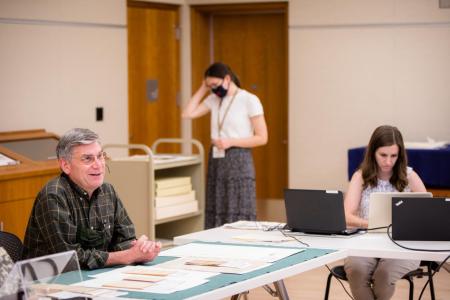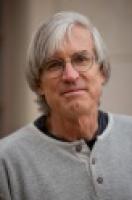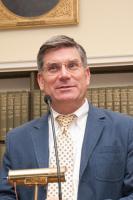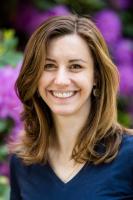
American Antiquarian Society
185 Salisbury Street
Worcester, MA 01609
United States
This Institute is both a colloquium and a collections-based virtual workshop that will explore how media was used during the Age of the American Revolution, a critical era of change in the American news milieu, in media use, in business, politics, and community life. We will examine how news—in all its various forms—was connected to civic engagement and how media fit into the public and private lives of the American people.
Through readings, discussions, and virtual workshops with original primary source material, we will seek to answer a variety of questions about news media and news culture in the late colonial period, during the Revolution and founding of the new nation, and in the early republic: What counted as news in early America? How was news gathered, distributed, shared, and consumed? What impact did the distribution of news have on political discussions and events? How was the business of media changing? What impact did law and government policy have? What roles did news and public information play in the lives of ordinary Americans? How might the experience of history shed light on our experience with news and news media today?
The following videos were prepared for this institute.
- American Broadsides and Ephemera Before 1800 (6:20)
- Printmaking in 18th-Century America (4:38)
- The When and Where of American Print Culture in the 1700s (11:18)
- The Who and What of American Print Culture in the 1700s (7:29)
- Some Characteristics of Colonial American Newspapers (6:58)
- The Format of Colonial American Newspapers (6:23)
This Institute will provide participants with a unique and relevant way to approach the colonial period and the era of the American Revolution. Studying the founding of the country through the lens of news media will help participants help their students to see their own media lives in historical perspective.

David Paul Nord is professor emeritus of journalism and adjunct professor of history and American Studies at Indiana University. He has written three books: Newspapers and New Politics: Midwestern Municipal Reform, 1890-1900 (1981), Communities of Journalism: a History of American Newspapers and Their Readers (2001), and Faith in Reading: Religious Publishing and the Birth of Mass Media in America (2004). Nord is also editor of the fifth and final volume in the Society’s A History of the Book in America. He was the Mellon Distinguished Scholar in Residence at the American Antiquarian Society in 2008.

Jim is vice president for programs and outreach at AAS. He oversees the Society’s promotional activities and all programming aimed at the general public and K-12 educators and students. He is also a writer, director, and producer who has created a wide variety of video, audio, and theatrical presentations. He wrote and produced the new introductory videos on this website, as well as the AAS-sponsored radio program The History Show, which appeared on 151 public radio stations in 47 states, and the Society’s Isaiah Thomas-Patriot Printer play, which is currently touring to schools and civic organizations. Jim holds a B.S. from Emerson College.

Kayla is the director of outreach at AAS. She works to reach a wide range of the Society’s constituents by planning and developing programming for the general public and K-12 audiences, running public and group tours, and being part of AAS’s social media team. She also manages and edits the Society’s publications, including the Almanac newsletter, the annual report, and the AAS blog (pastispresent.org). She has worked previously at Historic New England and the Emily Dickinson Museum. She holds a B.A. in history from the College of the Holy Cross and an M.A. in history and public history from the University of Massachusetts Amherst.